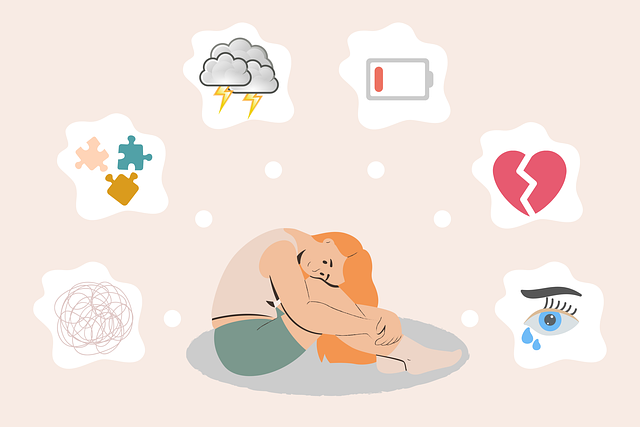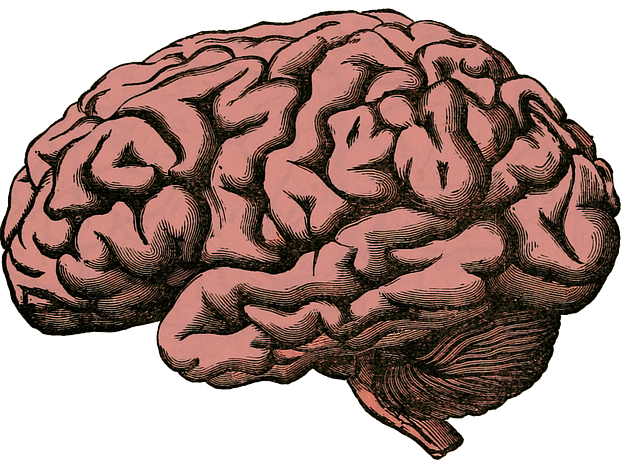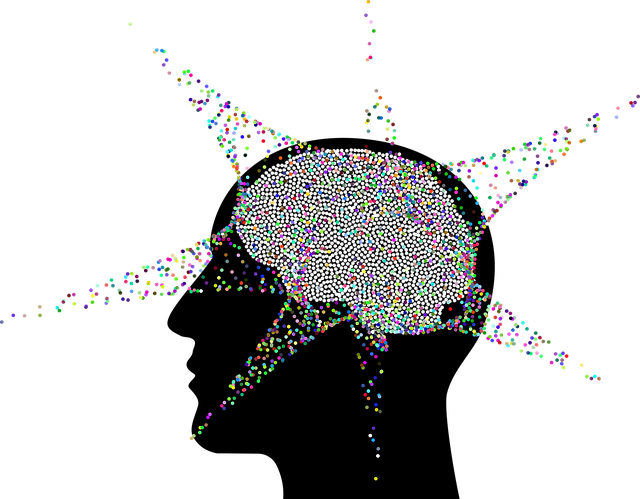Postpartum depression (PPD) in young adults is a growing concern, often overlooked yet impactful, especially within the first year of childbirth and extending into early adulthood. Diagnosis is complicated by symptoms like mood swings, sadness, anxiety, and bonding issues. Societal changes and expectations contribute to rising PPD cases among younger mothers. Specialized therapy, such as cognitive-behavioral therapy (CBT), plays a crucial role in recovery. Community outreach programs and mental wellness journaling offer support, promoting emotional well-being and resilience. Early intervention through CBT techniques helps develop effective coping skills, challenge negative thoughts, and build resilience for long-term mental health management. Support groups, self-care practices, and compassion cultivation also empower young adults to overcome PPD.
“Coping skills development is a vital strategy in addressing the escalating concern of postpartum depression among young adults. This comprehensive article delves into the multifaceted approach to managing this condition, focusing on early intervention and evidence-based therapy. We explore effective treatment methods, emphasizing the role of building resilience for long-term recovery.
From understanding the unique challenges faced by young parents to implementing support systems and self-care practices, these strategies aim to empower individuals in their journey towards overcoming postpartum depression, with a specific focus on therapy for young adults.”
- Understanding Postpartum Depression in Young Adults: A Growing Concern
- The Impact of Early Intervention on Recovery
- Therapy Approaches for Effective Coping Skills Development
- Building Resilience: Strategies for Long-Term Management
- Support Systems and Self-Care Practices for Overcoming Depression
Understanding Postpartum Depression in Young Adults: A Growing Concern

Postpartum depression (PPD) among young adults is a growing concern within the mental health community. This often overlooked issue affects new mothers, typically within the first year after giving birth, but it’s important to note that the impact can extend into early adulthood. The symptoms of PPD in young adults can be distinct from those experienced by older women, making diagnosis more challenging. Common signs include intense mood swings, persistent sadness, anxiety, difficulty bonding with the baby, and a diminished sense of emotional well-being.
The rise in PPD cases among younger populations is attributed to various factors, including societal changes and increased expectations for new mothers. The pressure to excel in both personal and professional life can take a toll on their mental wellness. Therapy for young adults suffering from PPD plays a pivotal role in recovery, offering specialized techniques like cognitive-behavioral therapy (CBT) tailored to address postpartum-specific challenges. Additionally, promoting emotional well-being through community outreach program implementations and mental wellness journaling exercises guidance can provide much-needed support, fostering resilience and healthy coping mechanisms for new mothers navigating this delicate phase.
The Impact of Early Intervention on Recovery

Early intervention plays a pivotal role in fostering recovery for young adults grappling with postpartum depression. Timing is crucial; offering therapy and support during this critical period can significantly enhance coping abilities and overall mental health. Many young parents, especially new mothers, may struggle to recognize the signs of depression due to societal expectations and the overwhelming demands of parenting. Thus, public awareness campaigns development focusing on normalizing conversations around mental health are essential. These initiatives can encourage help-seeking behaviors and promote empathy building strategies among peers, family, and community members.
By integrating resilience building techniques into therapeutic approaches, professionals can empower young adults to navigate postpartum challenges effectively. Through therapy for young adults with postpartum depression, individuals learn valuable coping skills, gain insights into their emotions, and develop healthier ways of managing stress. This proactive approach not only accelerates recovery but also equips them with the tools to prevent future relapses, fostering long-lasting mental well-being.
Therapy Approaches for Effective Coping Skills Development

The development of effective coping skills is a cornerstone of therapy for young adults experiencing postpartum depression. Therapies tailored to this demographic often emphasize cognitive-behavioral techniques, which help individuals identify and challenge negative thought patterns and replace them with healthier alternatives. Through structured conversations guided by a trained healthcare provider, these strategies foster cultural competency training, ensuring that unique cultural perspectives are considered in the therapeutic process. Empathy building strategies also play a vital role, as therapists create safe spaces for clients to express their feelings without judgment.
In addition to cognitive-behavioral therapy (CBT), other effective approaches include interpersonal psychotherapy, which focuses on improving communication and relationships, and mindfulness-based interventions that teach present-moment awareness and stress reduction techniques. Trauma support services are also integral, as many individuals dealing with postpartum depression may have experienced prior trauma. By addressing underlying issues and providing a supportive environment, these therapeutic methods empower young adults to develop robust coping mechanisms for managing their mental health effectively.
Building Resilience: Strategies for Long-Term Management

Building resilience is a key strategy for long-term management of mental health challenges, particularly in navigating issues like postpartum depression. Therapy for young adults often focuses on equipping them with effective coping skills and fostering self-esteem improvement to enhance their ability to cope with stress and adversity. Mental health education programs design tailored strategies that empower individuals to take charge of their emotional well-being. One powerful tool within these programs is mental wellness journaling exercises, which offer a private space for reflection, processing emotions, and tracking progress. This practice can be a game-changer in the journey towards resilience, helping young adults make sense of their experiences and cultivate positive coping mechanisms that will serve them throughout their lives.
Support Systems and Self-Care Practices for Overcoming Depression

Developing a strong support system is integral to overcoming depression, especially for young adults navigating this challenging phase. Therapy serves as a powerful tool, offering specialized treatments tailored to the unique needs of this demographic. Through cognitive-behavioral therapy (CBT) or interpersonal psychotherapy (IPT), individuals can learn to identify and change negative thought patterns and improve their relationships. Support groups specifically designed for young adults provide a safe space to share experiences and gain perspective from peers facing similar struggles.
In conjunction with professional support, cultivating self-care practices is essential for emotional healing processes. This includes prioritizing mental health through regular exercise, mindfulness meditation, or engaging in creative outlets. Building resilience starts with adopting healthy coping mechanisms that promote overall well-being. Compassion cultivation practices can also be transformative, encouraging individuals to treat themselves with kindness and understanding. These practices are valuable tools for managing symptoms of postpartum depression, fostering personal growth, and enhancing the ability to cope effectively.
Coping skills development is a multifaceted approach to addressing postpartum depression in young adults, a growing concern that requires early intervention and tailored therapy. By combining evidence-based therapy approaches, building resilience through proactive strategies, and fostering robust support systems, individuals can overcome depression and cultivate long-term mental well-being. For effective management, seeking professional help and integrating self-care practices are essential components of the journey to recovery for young adults dealing with this challenging condition, ultimately enhancing their quality of life.









